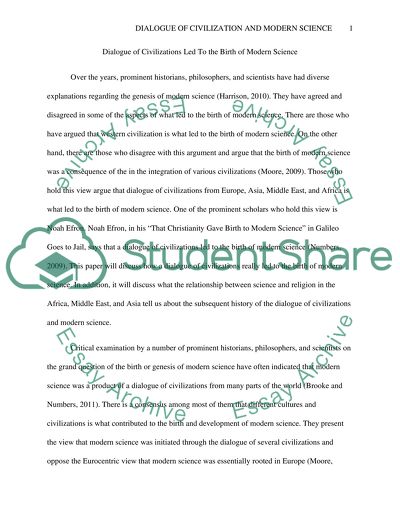Cite this document
(“Dialogue of Civilizations and Modern Science Essay”, n.d.)
Retrieved de https://studentshare.org/religion-and-theology/1456219-dialogue-of-civilizations-led-to-the-birth-of
Retrieved de https://studentshare.org/religion-and-theology/1456219-dialogue-of-civilizations-led-to-the-birth-of
(Dialogue of Civilizations and Modern Science Essay)
https://studentshare.org/religion-and-theology/1456219-dialogue-of-civilizations-led-to-the-birth-of.
https://studentshare.org/religion-and-theology/1456219-dialogue-of-civilizations-led-to-the-birth-of.
“Dialogue of Civilizations and Modern Science Essay”, n.d. https://studentshare.org/religion-and-theology/1456219-dialogue-of-civilizations-led-to-the-birth-of.


